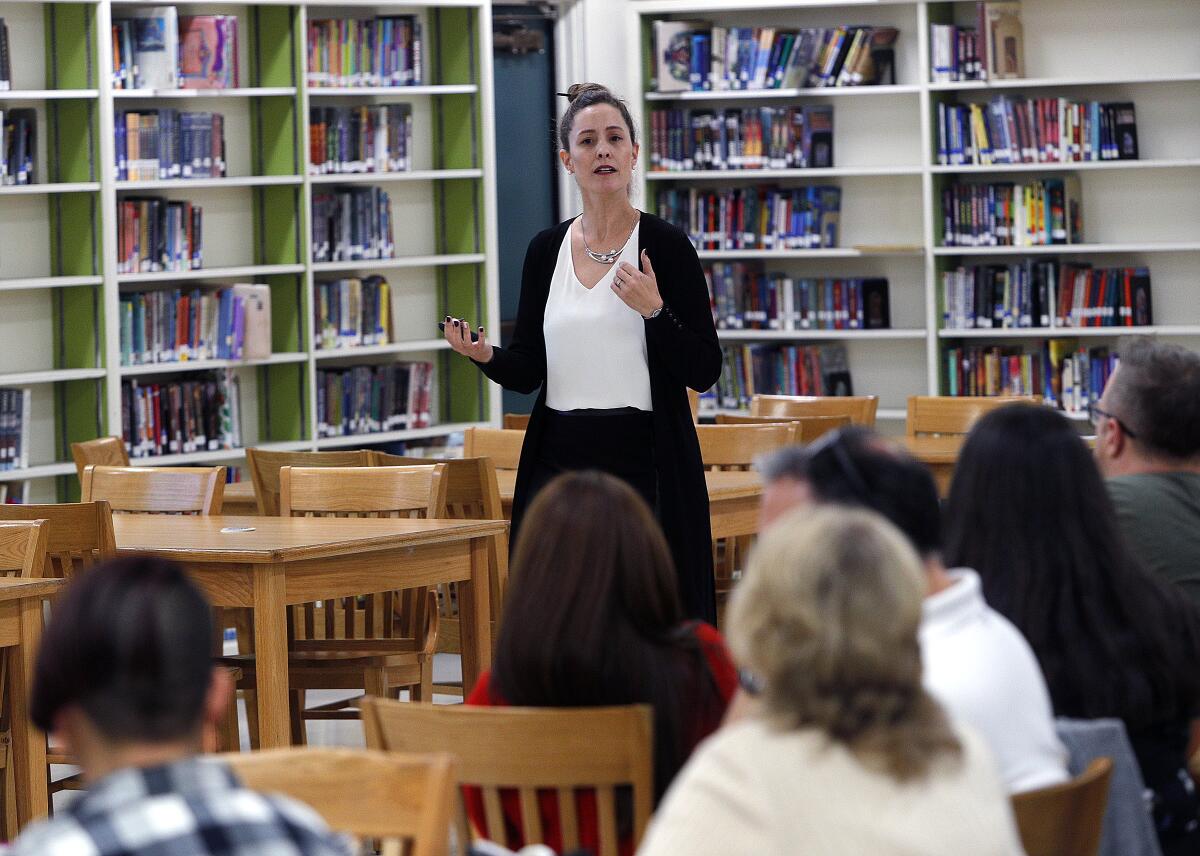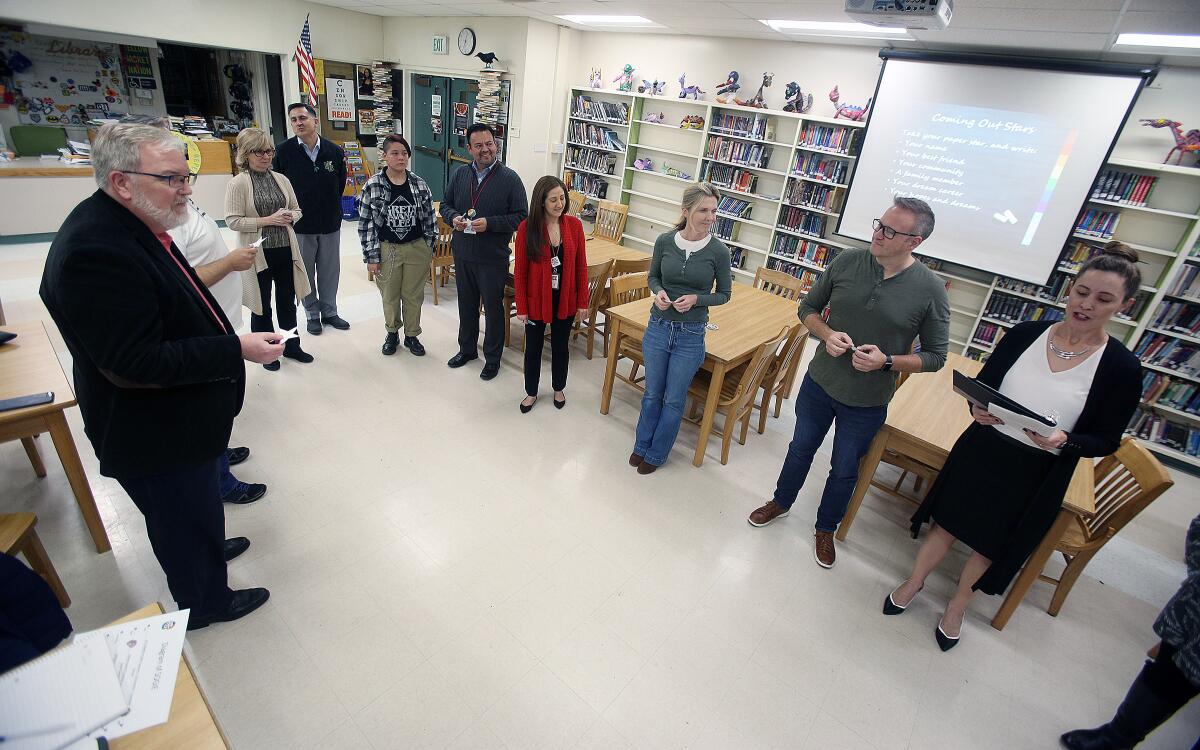LGBTQ-support event finds a home at Luther Burbank Middle School

- Share via
Two decades ago, when Luther Burbank Middle School principal Oscar Macias was a newly hired math teacher at Burbank Unified, the administrator said he would have never thought an LGBTQ awareness forum would have been presented on a district campus.
As Macias climbed the educational ladder, he noticed a change in the thoughts and attitudes of residents in his city, which has often been described as socially conservative.
Eventually, Macias thought the time was right to start a conversation about inclusion, so Luther Burbank hosted a workshop Wednesday called “Supporting Our LGBTQ+ Youth,” moderated by Summer Davidson Gomez, founder of the LGBTQ consulting organization Reach OUT.
“The climate of the city has changed,” Macias said. “I think the climate of society has changed to a more accepting and warmer environment, definitely.”
He added, “As a district, I’ve seen us grow as a more respectful, inclusive place.”
Gomez spoke for about 50 minutes, with her presentation serving as part question-and-answer session, part informative chat, along with an in-class exercise.
Gomez began by explaining the rationale behind her work.
“Forty percent of homeless youth in L.A. County are LGBTQ+, either because the homes have become so toxic that the kids leave on their own or the kids are kicked out outright,” she said. “There’s really this need to address parents.”
Gomez distributed a diagram outlining sexual orientation, gender identity and expression, or SOGIE, to show the differences between sex assigned at birth, gender identity, gender expression, sexual orientation and sexual behavior.
According to Gomez, sex assigned at birth has to do with anatomy, while gender identity is tied to an internal sense of self, gender expression is a communication of gender, sexual orientation involves sexual and romantic attraction and sexual behavior constitutes acts.
On the left side of the diagram were terms associated with males, such as “boys,” “man” and “masculine,” while on the right side were words correlating with females, including “girl,” “woman” and “feminine.”
Gomez said people who didn’t fall into those two neat categories, such as those who identify as gender queer or bisexual, were open to being stigmatized.

“In English and other romance languages, we have a binary language,” Gomez said. “We have ‘he’ or ‘she.’”
Gomez added, “We don’t have a word for somebody in the middle space and, when you don’t have a word for something, it’s hard to even wrap your head around it.”
A lack of understanding and acceptance has led to rejection and difficult circumstances for members of the LGBTQ community, Gomez said.
The Trevor Project, an LGBTQ crisis-intervention and suicide-prevention organization, estimates that LGBTQ youth are disproportionately represented in the prison population. Approximately 5% to 7% of the country’s youth identify as LGBTQ, much lower than the 13% to 15% of LGBTQ youth incarcerated.
About 20% of the foster-care system consists of LGBTQ youth, while LGBTQ youngsters are eight times more likely to report attempted suicide.
Gomez said the key to LGBTQ youth success and, in many cases, survival, is tied to a young person’s family.
“Those negative outcomes [are] directly related to the level of family acceptance,” she said.
The statistics stood out to Burbank Unified board president Roberta Reynolds, who attended on Wednesday.
“The key takeaway from the event, for me, was the presentation of the data demonstrating the direct relationship between rejection by family and the increase in the incidence of drug/alcohol use and suicide among our LGBTQ youth,” she said.
Reynolds added that she, like Macias, was happy Burbank Unified hosted such an event.
“While many people may look at Burbank as a socially conservative town, the reality is that many of our students and parents are part of the LGBTQ community,” she said. “We need events like this to help us to understand how to relate to all members of our school community.”
